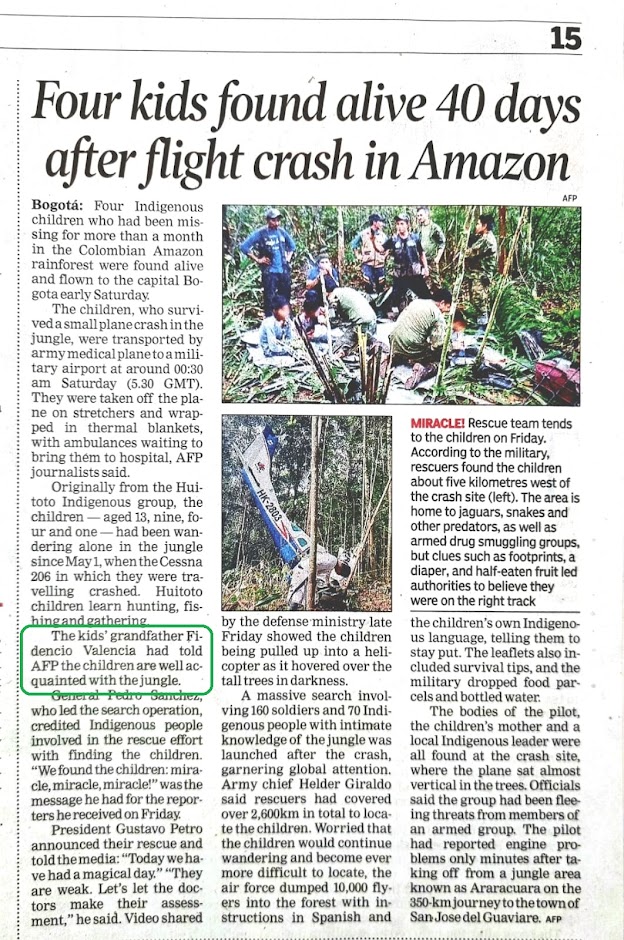Four Children | Forty Days 💚
In the Deep, Dense and Dark Amazonian Forests
Today’s newspapers are all agog and all aglow with the wonder-news on the four children who have miraculously survived a plane crash (that had happened on 1st May 2023) and were rescued alive after spending forty days in the deep dark and dense Amazon jungles.
.jpeg) |
| Today's Edition of the Tamil Hindu |
Brigadier General Pedro Sanchez who was in command of the rescue operation stated that,
This isn’t a search for a needle in a haystack, it’s a tiny flea in a vast carpet, because they keep moving…
So the men in the rescue team walked 10 metres apart.
In virgin forest, with trees 40 or 50 metres high, where the sun barely reaches the forest floor, a man can lose himself within 20 or 30 metres.
If someone is separated, the forest swallows them up,
he added.
 |
| Today's Edition of Malayala Manorama |
This is a virgin forest, thick and dangerous, and hence they would have needed to draw on ancestral knowledge, in order to survive.
Interestingly, all the four children are from an Indigenous group in southeastern Colombia – called the Huitotos!
 |
| Yesterday's Edition of the Times of India |
The President of Colombia, Gustavo Petro also had special praise for the children and their relationship with the environment.
“They are children of the jungle” with vast reserves of indigenous knowledge, he said.
Yet another indigenous leader - John Moreno, from where the children were brought up, said that,
the children had been raised by their grandmother, a widely respected indigenous elder.
They used what they learned in the community, relied on their ancestral knowledge in order to survive!
 |
| Yesterday's Edition of the Indian Express |
I’m quite reminded of a lovely poem [also displayed on a wall of the office at the Planet Drum Foundation in San Francisco] – which reads thus –
Step out onto the Planet.
Draw a
circle a hundred feet round.
Inside
the circle are 300 things nobody understands,
and,
maybe
nobody’s ever really seen.
How many
can you find?
From “Ring of Bone”, by Lew Welch (1973)
In short, ‘bioregional consciousness is more a certain kind of attention to place than a sense of identity that divides one place from another’.
PS: For an overview on Bioregional Literary Studies, you may want to look up our past post on the subject, HERE.


No comments:
Post a Comment